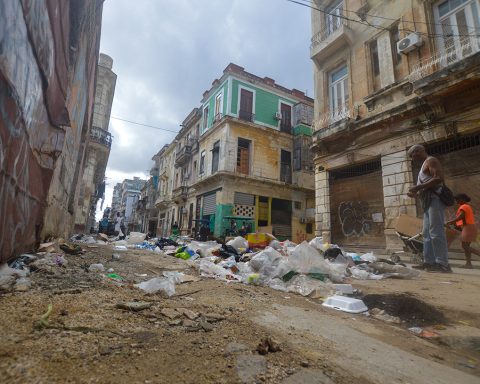June 7, 2023, 4:00 AM
June 7, 2023, 4:00 AM
Few activities have as many multiplier effects as agriculture, which in its lush value chain, generates jobs and income for those who comprise it. The 2020 pandemic showed that many activities can be stopped overnight -p. eg mining, hydrocarbons, tourism, entertainment- but not those that are linked to health and food, such as agriculture -by the way-, one of the most noble tasks having to do with life itself.
To understand how a food is produced, say, a soybean derivative, look at what you have to do: prepare the ground; buy national or imported seed; sow and take care of the crop; harvest the grain; silage, industrialize and market; hire engineers, technicians, extension workers, tractor drivers and machine operators; suppliers of fertilizers, pesticides and inputs; in industry, laboratory workers, workers and office workers; personnel to treat soybeans and store them; merchants of oils, cake, flour, lecithin and husk for the domestic market and export; shipping agents, bankers, port officials and public servants in plant health, Customs and others; fuel pumps and at each link in the chain, security people, drivers and train drivers for road, rail and river transport.
Hence, it is not possible to understand how the importance of this activity is underestimated, especially when some say that agriculture is an “extractivist activity”, an irreverence only comparable to what was said by another activist who, at the end of his presentation against agrobiotechnology, He stated that the Earth is flat…
Returning to the subject, I thank the Inter-American Development Bank (IDB) for inviting me to deliver your book
Betting on Agriculture to achieve productive diversification, in La Paz (31.5.2023), and I congratulate this initiative because what I heard from the specialists was music to my ears.
The 142-page study was presented by the IDB representative in Bolivia, Julia Johansen, seconded by Liliana Castilleja-Vargas, IDB economist for Bolivia, who excelled with in-depth analysis and wealth of data; Juana Jiménez, Vice Minister of Treasury and Public Credit, gave the event an emotional touch by evoking a family memory related to the subject; Osmel Manzano, IDB regional economic adviser, moderated the panel with the experts Elizabeth Jiménez, Cides/UMSA researcher; Javier Aliaga, researcher Inesad and Danilo Velasco, president of Caneb.
The thesis of the study is that agriculture can play a great role in the socioeconomic development of the Andean region, not only in terms of food security, but also because of its potential for more inclusive and sustainable growth.
To which more interesting, the eight themes of the book! Namely: The commitment to agriculture is a winner; Closing infrastructure gaps is a necessary condition to boost the productivity of the agricultural sector; The Andean institutionality of the agricultural sector: spaces of opportunity for its strengthening; The agricultural sector facing climate change, a call to adjust priorities and get down to work; Women in Andean agriculture: how to promote gender equality and their empowerment; Andean superfoods: betting on highly valued niches in the world market; An underexploited potential: the forestry sector in the Andean-Amazonian countries; Andean Agtechs: expanding the frontier of agricultural commercial possibilities through technology; and conclusions.
Unbeatable, the development of opportunities to materialize benefits with cross-cutting issues such as gender and climate change; the challenges for the agricultural sector and how to overcome them; impact of investment in energy, irrigation and infrastructure and institutional aspects to improve efficiency, competitiveness, sustainability, inclusive and environmentally friendly production schemes, and the efficient use of water resources in order to improve the quality of life of the people of the sector.
Likewise, given that in the Andean countries between 40% and 60% of their territory and forests with great biodiversity are in the Amazon basin, their high potential for sustainable management and forest plantations to improve the lives of the local population, is masterfully addressed in the book.
Finally, according to the times we live in, it addresses the issue of Agritech to increase efficiency, productivity and sustainability in agriculture, in areas such as Big Data, Artificial Intelligence, Internet of Things and Blockchain.
Betting on Agriculture to achieve productive diversificationis a successful work to understand this strategic activity in the country, especially when agriculture in the East, despite the pandemic, export restrictions and the lack of biotechnology, does not stop growing, and continues to feed tens of millions of people in Bolivia and the world.
















